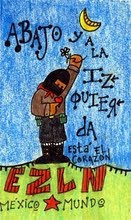State changes but Kurds not
"The "Kurdish national awareness" is a notion beyond Kurds in Turkey. In this perspective, Kurds have gone through a radical change in the last two decades. Kurdish identity is, for them, an irreversible fact now. As we visited the region, this has become one of the most striking facts. And the real reason is neither the BDP nor the outlawed Kurdistan Workers' Party, or PKK. This is an "objective" issue. Both the BDP and the PKK have adapted a clearer attitude when it comes to Kurdish identity. I am of the opinion that it is wrong and problematic to think that such awareness is artificially generated by the BDP..."
ORAL ÇALIŞLAR
April 6, 2010
Associate Professor Yalçın Akdoğan is a figure very close to Prime Minister Recep Tayyip Erdoğan. Akdoğan, as an academic, is particularly known for his studies on democratization and social changes, so I carefully read his piece on where the Kurdish question stands on today. Akdoğan's article was published in the daily Star's supplement, Açık Görüş (Open View) on Sunday.
The title of his piece was, in a way, summarizing the basics inside: "The state is changing but the Peace and Democracy Party, or BDP, is not."
Akdoğan made the following critical point:
"The masses that were politicized by the BDP are now acting on a nationalistic awareness, trying to generate a nation. The psychological distance between Turkish society and them is getting bigger. Agendas, attitudes, expectations and demands are differing."
The differing demands between two communities have been observed for a long time by those who are familiar with the Southeast. After nearly every trip to the region, I stress this change and differentiation and try to explain that society at large should face the fact.
Following his assessments Akdoğan offers the following for solution:
"It is a must to make cold-blooded analyses and evaluations on the Kurdish question. To give importance to the viewpoints of our Kurdish citizens is necessary to find a solution. For the state, the act of reviewing its perspectives, changing its main policies and making noteworthy progress for democracy should offer change for the Kurdish politicians and people who are influenced by the Kurdish movement."
The thesis of "the state changes but the Kurdish movement not" is something to be discussed in detail.
If the thought mechanisms of such a thesis are analyzed properly, we may reach quite different results ideologically. The national awareness rising among Kurds is artificially formed by the Kurdish movement and, therefore, a suggestion that says "there is an attempt to build a nation up" could be some of many criticisms or assessments in the end.
The Kurdish movement and the Kurdish national awareness are not restricted solely to Kurds living in Turkey. In northern Iraq, which the world recognizes as "Kurdistan," the official language is Kurdish, even in many universities. Some of the Kurdish youth in Turkey are getting an education in their own language there.
The "Kurdish national awareness" is a notion beyond Kurds in Turkey. In this perspective, Kurds have gone through a radical change in the last two decades. Kurdish identity is, for them, an irreversible fact now. As we visited the region, this has become one of the most striking facts. And the real reason is neither the BDP nor the outlawed Kurdistan Workers' Party, or PKK. This is an "objective" issue. Both the BDP and the PKK have adapted a clearer attitude when it comes to Kurdish identity. I am of the opinion that it is wrong and problematic to think that such awareness is artificially generated by the BDP.
Because it is pointless to arrest so many Kurdish mayors, have operations against the Kurdistan Peoples' Community, or KCK, and pressurize the Kurdish movement in order to stop the rise of Kurdish awareness. These could deepen "psychological estrangement".
As for the thesis that "the state is changing but the BDP not," it doesn't seem realistic to me. For instance, the daily Taraf the other day published an interview by Neşe Düzel with Zübeyir Aybar, one of the important names behind the Kurdish movement. Aydar spoke in contrast to Akdoğan, saying that Kurds have changed but not the state. "Turkey still doesn't accept the Kurdish reality. It hasn't reached the point in which it can say, 'There are Kurdish people living in this country and they do have rights.' Turkey still perceives Kurds as a folkloric element (…) we sent peace groups. But they were outraged after a bit of happiness on Kurds' side. Turkey doesn't want a solution. More operations are being conducted now."
It is a fact that, the Kurdish movement has changed as well as the state's attitude; not enough, however, to create a solution. For instance, the dominant understanding in the state doesn't accept the fact that the Kurdish language needs to be supported as a "mother tongue." The state still resists the idea. As for bringing the PKK militants back from the mountain, it is impossible to talk about a road map prepared by the state. Therefore, Kurds cannot take courageous steps in order to stop this although they see that the armed struggle is not a solution.
And the Kurdish perception in Turks' mind still is not rational enough.
* Mr. Oral Çalışlar is a columnist for the daily Radikal in which this piece appeared Tuesday. It was translated into English by the Daily News staff
© 2009 Hurriyet Daily News
URL: www.hurriyetdailynews.com/n.php?n=state-changes-but-kurds-not-2010-04-06
--
Patrick Mac Manus
Midgaardsgade 13, 3. th.
2200 København / Copenhagen N
+45 22 45 41 78
Foreningen Oprør / Rebellion (Denmark): www.opror.net/blog/
Ny udgivelse: Den tilkæmpede historie - fabler og fortællinger. Forlaget Arbejderen 2009. http://arbejderen.dk/bestil_materialer.asp#Manus
Facebook: http://www.facebook.com/home.php?#/profile.php?id=1524044767&ref=name




